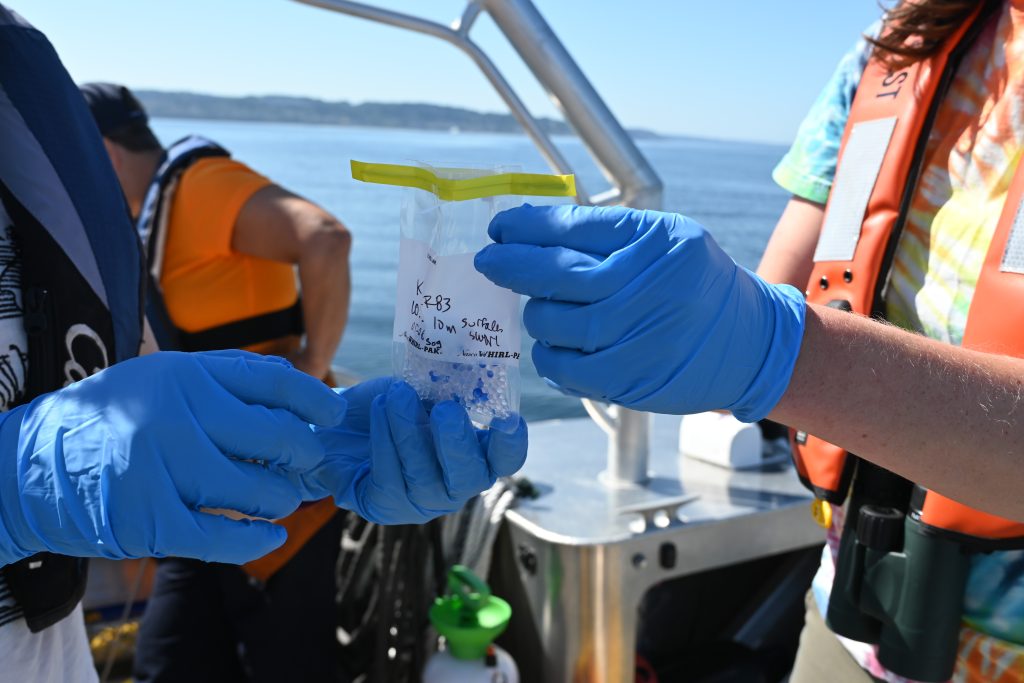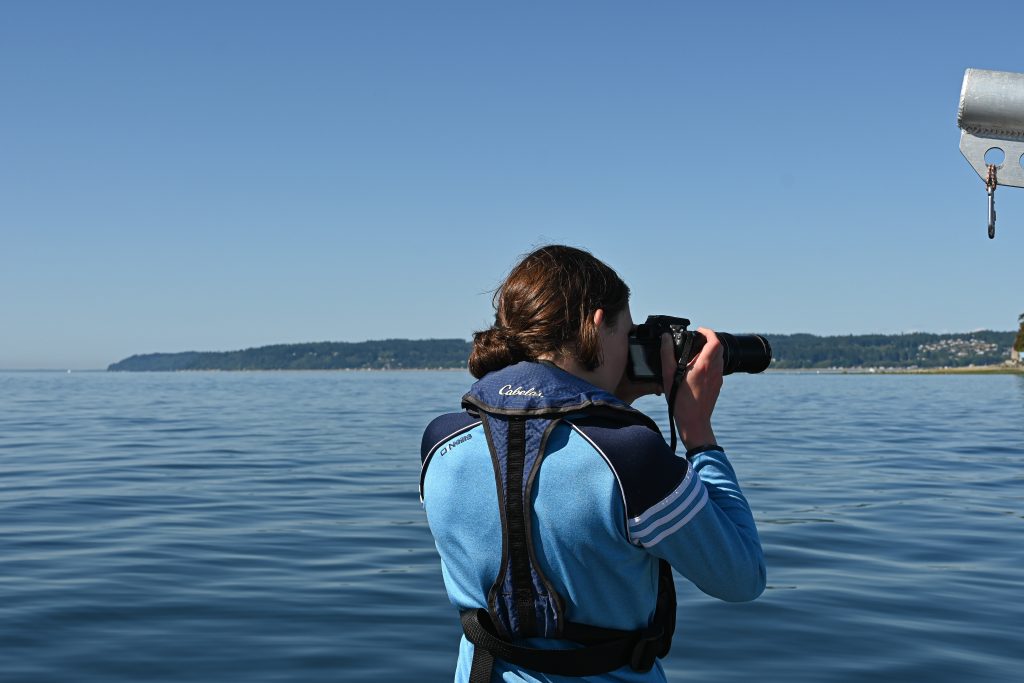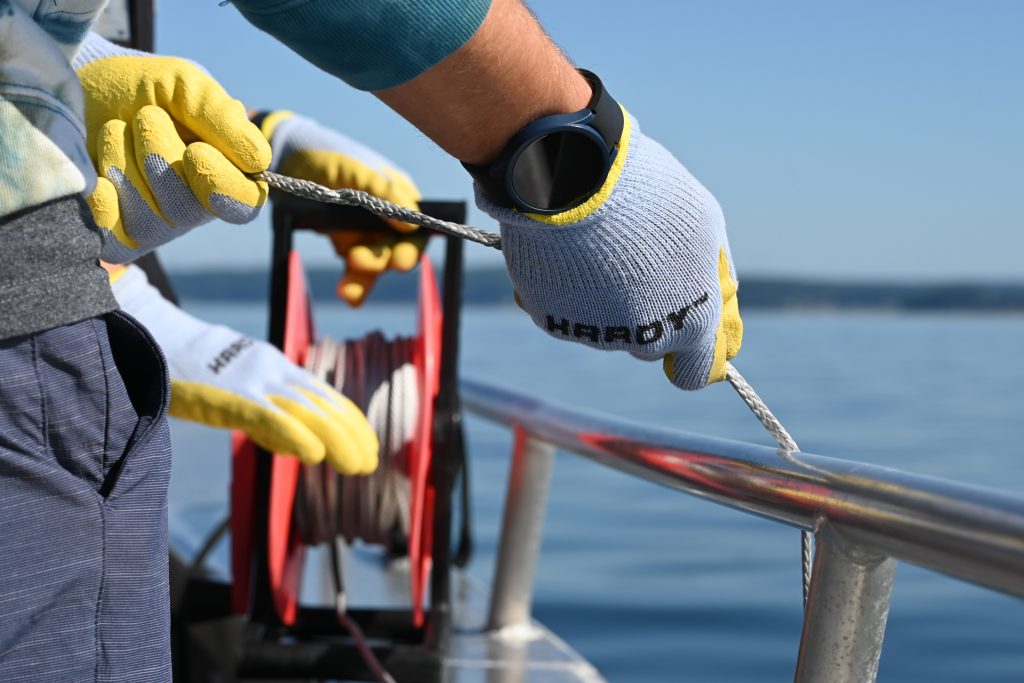Marine research fieldtrip with the Everett CC ORCA Program
Bright skies and calm winds: this was the setting for an August fieldtrip that we joined with the Ocean Research Academy College (ORCA) program from Everett Community College.
Setting off on their research boat, Phocoena (the Latin name for harbor porpoise), we embarked with seven high school students and three faculty for a morning filled with aquatic research and marine animal spotting.
The students used a variety of techniques and equipment to measure conductivity, salinity, dissolved oxygen and even photosynthetically active radiation. This was done by measuring the wavelength of light used by chlorophyll to produce energy, and seeing how deep it penetrates the water. They also used an innovative tool, with a 3D printed filter made by a student, to collect eDNA. Swirled in the water for 10 minutes at two different depths, this tool collects eDNA from anything in the area in the past six-hour period.

From eelgrass meadows and floating kelp fronds to harbor porpoises and blue herons, the three-hour research trip was filled with opportunities to see the diversity of the marine environment in the Puget Sound.

Lily Peterson, a current UW Marine Biology major who was also in the Everett CC ORCA program, said: “ORCA helped to build my passion for marine science, all while providing me with connections to profound researchers, experience with handling marine research equipment, paper writing skills, and confidence in conducting my own research. As an incoming second year at the University of Washington, the networking and research skills that I acquired from ORCA have already gotten me far in the marine biology field with volunteering and internship opportunities. The experienced teaching staff, the close-knit group of passionate students, and the unique field research and lab research opportunities that ORCA offers has prepared me well as I strive to attain a degree in Marine Biology.”
ORCA is an innovative early college academy for high school students, who can earn up to two years of college credit while completing their high school graduation requirements. Throughout the year, students engage in daily monitoring and independent research projects, both on the water and in the lab.
